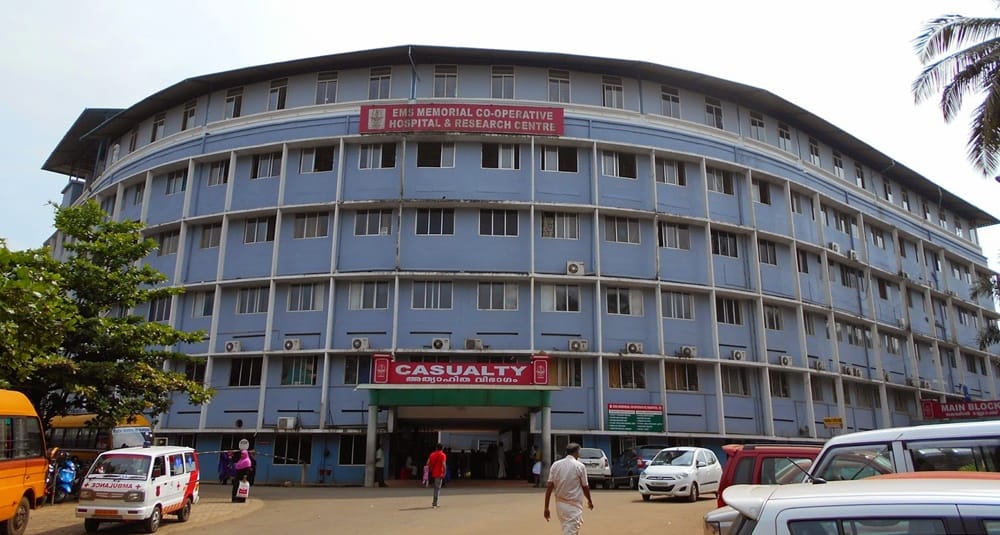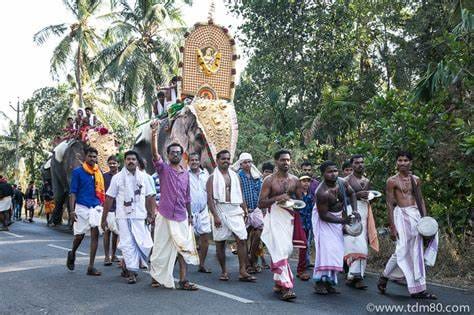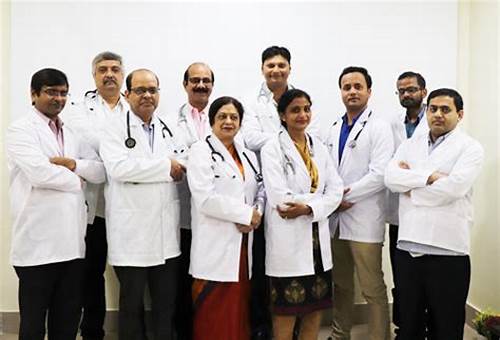About Kerala Health
Kerala's health achievements represent one of the most successful examples of human development in the developing world. The state has demonstrated that exceptional health outcomes are achievable even without exceptional economic prosperity

Kerala's Health Success Story: A Model for India's Development
Introduction
Kerala, often referred to as "God's Own Country," stands as a remarkable testament to what can be achieved in human development without necessarily having the highest per capita income in India. The state has earned international recognition for its exceptional health indicators, social development achievements, and quality of life measures that rival those of developed nations. Despite having a modest economic base compared to states like Maharashtra or Gujarat, Kerala has consistently outperformed the rest of India across virtually every health and social development metric.
This extraordinary achievement, commonly known as the "Kerala Model," demonstrates how strategic investments in healthcare, education, and social services can produce outcomes that far exceed what economic indicators alone might predict. The state's approach to public health, combining government intervention with community participation, has created a healthcare ecosystem that serves as a blueprint for sustainable human development.
Life Expectancy: Leading India's Longevity Revolution
Outstanding Life Expectancy Statistics
Kerala's life expectancy achievements are nothing short of remarkable when viewed in the Indian context. As of 2021, the life expectancy for females is 79.98 years in Kerala compared to 72.09 years in India as a whole, representing a gap of nearly eight years. In female life expectancy Kerala leads at 79.2 years, positioning it at the top among all Indian states.
For males, the statistics are equally impressive. The life expectancy at birth in Kerala for males and females was 72 and 77 years respectively, with life expectancy at birth is 78 years overall. This places Kerala's life expectancy indicators closer to those of developed countries than to the Indian national average.
Comparative Analysis with Other States
When compared to other major Indian states, Kerala's superiority in life expectancy becomes even more apparent. In Tamil Nadu the life expectancy at birth for males and females was 69 and 72 years respectively, showing Kerala's consistent 3-5 year advantage even over other well-performing states. This gap widens dramatically when compared to less developed states, where life expectancy can be 10-15 years lower than Kerala's figures.
Gender Equity in Longevity
One of Kerala's most notable achievements is the relatively small gender gap in life expectancy. The literacy gap between males and females in India is lowest in Kerala, with the female literacy rate just 5% lower than that of males, and this educational equity translates into better health outcomes for both genders. The state's emphasis on women's education and healthcare access has contributed significantly to improved maternal health and overall female longevity.
Child and Infant Mortality: Setting National Standards
Infant Mortality Achievements
Kerala's infant mortality statistics represent one of the most dramatic success stories in Indian public health. The infant mortality rate is 7 per 1,000 live births in Kerala, as opposed to 28 in India nationally, representing a four-fold improvement over the national average. More recent data suggests even better performance, with the infant mortality rate in the state of Kerala in India was about six deaths per 1,000 live births, remaining constant at 6 deaths per 1000 live births.
Maternal Mortality Excellence
Kerala's maternal health outcomes are equally impressive. Kerala is the best-performing state with the lowest maternal mortality ratio (MMR) at just 20 per lakh live births according to the Sample Registration System Report 2021. However, recent data indicates some challenges, as recent estimates from the State Health Department indicate that MMR in Kerala has increased to 32 in 2024-25, highlighting the need for continued vigilance and improvement in maternal healthcare services.
Neonatal and Child Mortality
The state's comprehensive approach to child health extends beyond the immediate newborn period. Historical data shows that the infant mortality rate is currently 50 per 1,000 births, the neonatal mortality rate is 40, and the child mortality rate is 32. These rates are about half those observed in the rest of India, though more recent figures show continued improvement to even lower levels.
Healthcare Infrastructure and Medical Facilities
Public Healthcare System
Kerala's healthcare system is built on a foundation of robust public sector provision complemented by a thriving private sector. The state operates an extensive network of primary health centers, community health centers, district hospitals, and specialized medical institutions that ensure healthcare access across urban and rural areas.
The public healthcare infrastructure includes a comprehensive network of primary healthcare centers serving rural populations, district hospitals providing secondary care services, medical colleges and teaching hospitals offering tertiary care, specialized institutions for mental health, cancer treatment, and other specialized services, and community health programs focusing on preventive care and health education.
Private Healthcare Sector
Kerala's private healthcare sector has evolved to complement the public system rather than replace it. The state is home to some of India's most reputed private hospitals and healthcare chains, including Apollo Hospitals, Aster Medcity, and Amrita Institute of Medical Sciences, which attract patients not only from across India but also from international markets, particularly from the Middle East and Africa.
Medical Education and Human Resources
The state has invested heavily in medical education, producing a large number of healthcare professionals relative to its population. Kerala has multiple medical colleges, both government and private, nursing schools and paramedical training institutions, specialized training programs for healthcare workers, and continuing education programs for practicing healthcare professionals.
This investment in human resources has created a situation where Kerala exports healthcare professionals globally while maintaining adequate staffing levels for its own healthcare needs.
Free Medicine and Hospitalization Programs
Comprehensive Healthcare Coverage
Kerala has implemented various programs to ensure healthcare accessibility regardless of economic status. The state provides free or subsidized healthcare services through government hospitals and health centers, prescription drugs and essential medicines through public healthcare facilities, emergency medical services and ambulance services, and specialized treatment programs for chronic diseases and major illnesses.
Insurance and Social Protection
The state has embraced health insurance schemes and social protection mechanisms including participation in the Ayushman Bharat scheme for comprehensive health coverage, state-specific insurance programs complementing national schemes, community health insurance initiatives, and special provisions for vulnerable populations including the elderly, disabled, and economically disadvantaged.
Pharmaceutical Access
Kerala's approach to pharmaceutical access includes maintaining adequate stocks of essential medicines in public facilities, negotiating bulk purchase agreements to reduce medication costs, supporting generic drug prescription and usage, and implementing quality control measures for pharmaceutical products.
Comparison with Other Indian States
Health Index Rankings
According to the NITI Aayog Health Index Score, among the larger states Kerala (82.20), Tamil Nadu (72.42) and Uttar Pradesh (30.57), demonstrating Kerala's significant lead over other major states. This ranking reflects comprehensive health outcomes including mortality rates, healthcare infrastructure, and health program performance.
Key Comparative Metrics
When compared to other Indian states, Kerala consistently outperforms in disease burden and mortality rates significantly lower than national averages, healthcare infrastructure density and quality superior to most states, health program coverage and effectiveness leading in immunization, maternal care, and disease prevention, and health expenditure efficiency achieving better outcomes with comparable or lower per capita spending.
Regional Variations
Even within Kerala, there are variations in health outcomes, though these are generally smaller than variations between Kerala and other states. Tribal areas and remote regions within Kerala may have health indicators that, while still superior to most of India, lag behind the state's urban and more developed areas.
Dietary Habits and Nutritional Patterns
Traditional Kerala Diet
Kerala's traditional diet has contributed significantly to the state's health outcomes. The typical Kerala diet includes high consumption of rice as the staple grain, providing steady energy and nutrition, coconut and coconut oil used extensively, providing healthy fats and medium-chain triglycerides, fish and seafood consumption due to the coastal geography, offering high-quality protein and omega-3 fatty acids, abundant use of spices like turmeric, ginger, and curry leaves with anti-inflammatory and medicinal properties, and extensive vegetable consumption including traditional leafy greens and root vegetables.
Modern Dietary Transitions
Like many parts of India, Kerala is experiencing dietary transitions that present both opportunities and challenges. Increasing urbanization has led to greater consumption of processed foods and reduced physical activity, growing prevalence of lifestyle diseases including diabetes and cardiovascular conditions, changing meal patterns with more eating out and convenience food consumption, and dietary diversification with increased consumption of wheat, meat, and dairy products.
Nutritional Security
Despite these transitions, Kerala maintains relatively good nutritional security through effective public distribution systems ensuring food grain access, midday meal programs in schools addressing child nutrition, anganwadi services providing early childhood nutrition support, and nutrition education programs promoting healthy eating habits.
Lifestyle and Behavioral Health Factors
Physical Activity Patterns
Kerala's geography and culture have historically promoted physical activity, though modern lifestyle changes are creating new challenges. Traditional lifestyle factors supporting health include walking and cycling as common transportation modes, agricultural work providing natural physical activity for rural populations, traditional dance forms and martial arts promoting fitness and cultural engagement, and outdoor activities supported by favorable climate and natural environment.
Modern challenges include increasing sedentary lifestyles among urban populations, reduced physical activity among youth due to academic pressures and technology use, motorization reducing walking and cycling, and changing work patterns with more desk-based employment.
Mental Health and Social Factors
Kerala's social structure and cultural values have generally supported mental health and wellbeing through strong family and community support systems, high literacy rates contributing to better understanding of health issues, cultural traditions promoting mindfulness and spiritual practices, and relatively lower levels of social inequality compared to other Indian states.
However, the state also faces mental health challenges including higher suicide rates that require continued attention, substance abuse issues particularly related to alcohol consumption, mental health stigma that prevents some people from seeking care, and social pressures related to education and employment.
Health-Seeking Behavior
Kerala's population demonstrates positive health-seeking behavior including early healthcare consultation for health problems, high acceptance of preventive healthcare measures like vaccination, strong compliance with medical advice and treatment regimens, and active participation in health education and awareness programs.
Healthcare Industry and Economic Impact
Healthcare as an Economic Sector
Healthcare has become a significant economic sector in Kerala, contributing to employment, income generation, and overall economic development. The sector provides employment for healthcare professionals, support staff, and auxiliary services, generates revenue through medical tourism and healthcare exports, supports related industries including pharmaceuticals, medical devices, and health technology, and contributes to state revenue through taxes and economic activity.
Medical Tourism
Kerala has emerged as a major medical tourism destination, particularly for patients from the Middle East, Africa, and other parts of India. Factors driving medical tourism include high-quality healthcare services at competitive costs, availability of specialized treatments and procedures, cultural and linguistic compatibility for international patients, and integration of traditional Ayurvedic treatments with modern medicine.
Healthcare Innovation and Technology
The state is increasingly embracing healthcare innovation and technology including telemedicine programs connecting remote areas to specialist care, electronic health records and digital health initiatives, medical research and development activities, and integration of artificial intelligence and data analytics in healthcare delivery.
Future Health Prospects for Kerala
Demographic Transition Challenges
Kerala faces unique challenges due to its advanced demographic transition. The state has an aging population requiring increased healthcare services for chronic diseases and geriatric care, declining birth rates leading to changes in healthcare service demand patterns, changing disease patterns with increasing lifestyle diseases and decreasing communicable diseases, and healthcare workforce planning challenges due to demographic changes.
Emerging Health Priorities
Future health priorities for Kerala include non-communicable disease prevention and management, particularly diabetes, cardiovascular disease, and cancer, mental health services expansion and destigmatization, geriatric care and age-friendly healthcare infrastructure, environmental health challenges including air and water quality, and health system sustainability in the face of changing demographics and disease patterns.
Technological Integration
The future of Kerala's healthcare system will likely involve increased technological integration through expanded telemedicine and digital health services, artificial intelligence applications in diagnosis and treatment, robotic surgery and advanced medical procedures, personalized medicine based on genetic and lifestyle factors, and health information systems supporting population health management.
Policy and Governance Evolution
Kerala's healthcare governance will continue to evolve to address emerging challenges through health policy updates reflecting changing disease patterns and demographic needs, strengthened health systems governance and accountability mechanisms, enhanced intersectoral collaboration addressing social determinants of health, and sustainable financing mechanisms ensuring continued healthcare access and quality.
Challenges and Areas for Improvement
Persistent Health Challenges
Despite its overall success, Kerala faces several ongoing health challenges including the rising prevalence of lifestyle diseases such as diabetes and hypertension, mental health issues requiring expanded services and reduced stigma, healthcare system sustainability in the face of demographic changes, environmental health challenges from pollution and climate change, and health equity issues ensuring all population groups benefit equally from health advances.
System Strengthening Needs
Areas requiring continued attention include healthcare financing sustainability and efficiency, health workforce planning and retention, healthcare infrastructure modernization and expansion, health information systems and data management, and emergency preparedness and disaster response capabilities.
Social and Economic Factors
Broader social and economic factors affecting health include income inequality and its impact on health outcomes, urbanization and its effects on lifestyle and health, migration patterns affecting healthcare planning and delivery, education system pressures affecting youth mental health, and changing family structures affecting elderly care and support systems.
Lessons for Other States and Nations
Replicable Strategies
Kerala's health success offers several lessons that other states and developing regions might adapt including prioritizing investment in primary healthcare and preventive services, ensuring universal access to basic healthcare services, investing in education, particularly female education, as a foundation for health improvement, developing comprehensive public health programs addressing multiple health determinants, and building strong health information systems for monitoring and evaluation.
Policy Innovation
Kerala's policy innovations that could be replicated include integrated approaches to health and social development, community participation in health program planning and implementation, public-private partnerships in healthcare delivery, health insurance and social protection mechanisms, and evidence-based policy making using health data and research.
Adaptation Considerations
While Kerala's model offers valuable lessons, adaptation to other contexts requires consideration of local social, economic, and cultural factors, available resources and infrastructure, political and governance systems, existing health system capacity and structure, and population health needs and disease patterns.
Conclusion
Kerala's health achievements represent one of the most successful examples of human development in the developing world. The state has demonstrated that exceptional health outcomes are achievable even without exceptional economic prosperity, through strategic investments in healthcare, education, and social services combined with effective governance and community participation.
The "Kerala Model" continues to evolve, facing new challenges while building on its foundational strengths. As the state addresses emerging health priorities including aging population needs, lifestyle diseases, mental health, and environmental health challenges, it continues to offer valuable insights for health policy and practice both within India and internationally.
Kerala's experience demonstrates that health is not merely the absence of disease but a comprehensive state of physical, mental, and social wellbeing that requires sustained investment, community engagement, and adaptive policy responses. As the state looks toward the future, its commitment to health equity, quality healthcare, and social development positions it well to continue serving as a model for sustainable human development.
The state's success story reinforces the importance of viewing health as a fundamental human right and a key component of sustainable development, offering hope and practical guidance for regions seeking to improve population health and quality of life for their citizens.



